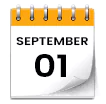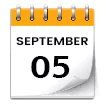23 Feb 2024 : Daily Answer Writing
Q1) Though President of India is the constitutional head of the state, he is only a nominal executive and not a real executive. Comment (150 Words/ 10 Marks)
ANSWER
In the Indian parliamentary system, the President is the constitutional head of the state and represents the unity of the country. However, the President’s powers and functions are largely ceremonial and symbolic in nature. The real executive power is vested in the Council of Ministers headed by the Prime Minister.
The role of the President of India as the constitutional head of the state is as follows:
- Head of State: The President of India is the formal head of the state and represents the nation in both domestic and international affairs.
- Symbolic Role: The President embodies the unity and sovereignty of the country and acts as a symbol of national unity.
- Constitutional Duties: The President performs various constitutional duties such as giving assent to bills, summoning and proroguing the Parliament, and appointment of officials, ministers, and prime ministers.
- Commander-in-Chief: The President is the Supreme Commander of the Indian Armed Forces.
- Diplomatic Representation: The President represents India in diplomatic engagements and receives foreign dignitaries.
- Judicial Role: The President has the power to grant pardons, commute sentences, and exercise other powers to ensure justice as a last resort.
However, the President is considered a nominal executive and not the real executive due to the following reasons:
- Executive Power with Council of Ministers: The President exercises executive powers on the advice of the Council of Ministers headed by the Prime Minister.
- Aid and Advice: The President is constitutionally bound to act in accordance with the advice of the Council of Ministers. The scope for independent decision-making by President is nonexistent.
- Ceremonial Functions: The President’s role is largely ceremonial. She has limited involvement in day-to-day governance and policy-making.
E.g., requirement to summon each House of Parliament under article 85.
- Limited Discretionary Powers: The President does not possess extensive discretionary powers. Her powers are subject to constitutional provisions and restrictions, such as power of suspensive veto.
- The Prime Minister is the head of the government. She exercises the real executive powers, leading the Council of Ministers in policy formulation and implementation, while the President’s role is criticised as being akin to rubber-stamp.
- Accountability to Parliament: The Council of Ministers is accountable to the Parliament for its actions and policies and not to the President.
Overall, while the President holds a significant constitutional position and performs important ceremonial and symbolic functions, the real executive powers are exercised by the Prime Minister.
However, presidents such as Dr Rajendra Prasad and Dr APJ Abdul Kalam have shown that the office of the President could exert a tremendous influence on the government even in the limited scope as the constitutional head of the state.
Upload Answer here




